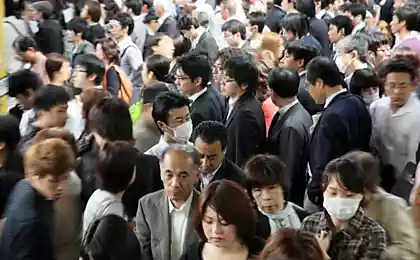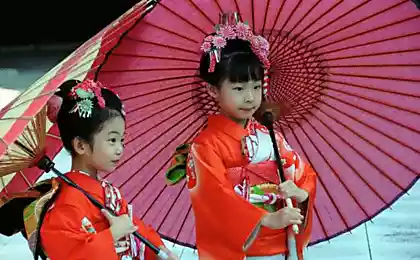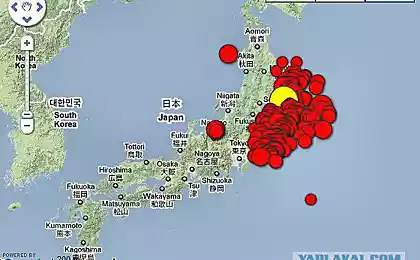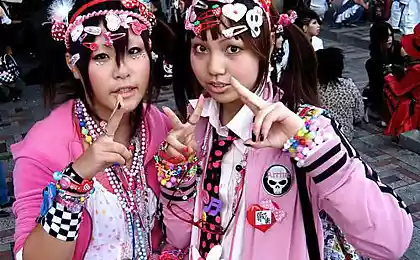752
That is why children in Japan around to obey their parents and do not act up


Amazing country Japan. The whole world admires the tenacity of the Japanese, their restraint, the desire to live in harmony with nature and its people. And this is not a complete list of features of their character, which can take over.
We are in the Website have great respect for this great nation and we wish to share with you the Japanese approach to child-rearing.
The first thing that catches the eye in Japan - is extraordinary understanding between the generations. Children do not like capricious. One reason for such unanimity - a tradition of joint residence with the child, coming from the distant past.
Since ancient times the mother combined with the work and raise children. Kid primatyvalsya cloth to her mother, and was kept there. This mother constantly voiced what she was doing, and talked with the child that allowed him to feel involved in all processes and continuously develop
Today, wherever directed Japanese, whatever worked, little is always there - in the chest or behind the back.
Usually my mother stays at home until the baby is not 3 years old, after which he was sent to a kindergarten. There is also a nursery, but raising them in a small child is not welcome, as well as unacceptable to leave the baby in the care of grandparents.
A child from an early age are taught to be considerate of the feelings - his own, and even the surrounding objects. If spoiled kid breaks his beloved typewriter, my mother did not take anything, but just to say, "You're hurting her»
. Babe is not confined to women. With a toddler and a man willing to coddling. < Children literally basking in his parents' attention and arms. It is not accepted to raise your voice, lecturing, not to mention the corporal punishment. Children also tend to feel a sense of guilt and remorse, if delivered to parents in trouble.
Since childhood instilled the notion that we should not disturb others, to behave politely, like all the others. The Japanese show discontent with the help of sight and intonation. Children can accurately recognize when parents do not approve of their behavior, and try to correct.
Summarizing, we can say that in Japan, children receive a large number of parental warmth, love and care, as well as from childhood learn the principles of collective society. Of course, the education system is very different from our own and someone may even seem paradoxical. However, it is tested for centuries and helps to cultivate a disciplined and law-abiding citizens of their country.
Photos on the preview: Natt Muangsiri / Flickr
via www.flickr.com/photos/twostepsbehind/3455247204/in/photolist-5hZLRX-5hZK5p-5hZL4n-5hZJUV-bpg5kn-5i56Bf-5i57KG-CXkbQ5-Ecxw6f-5hapnf-EefjvZ-5i56YU-5hZKDe-E6KRHD-93Zt2H-4ZAtct-5hZNWZ-DDBh1u-9p3yvQ-6i8qs7-5hZNFF-5i56QW-5i59Vd-5i59hL-5i58KE-5hZKdn-9h8V8E-5i5aPh-C96j8J-5i56aQ-5hZNJr-9nqZeF-5i59RW-5i57Ub-5i5amy-5hZKgz-5hZKQt-DzCJmB-93Z4wF-9oZusp-943wtj-6gk3BE-93YQcx-93Z4xK-942U4j-rwE9Xn-rJoxSx-qJ56LG-rFkVS3-qJhoqZ
Not so scary picture in the passport, a photocopy of her
15 stars, to give shelter to homeless animals and care























